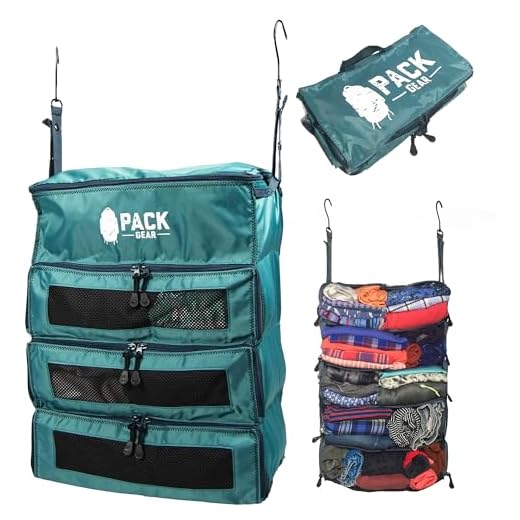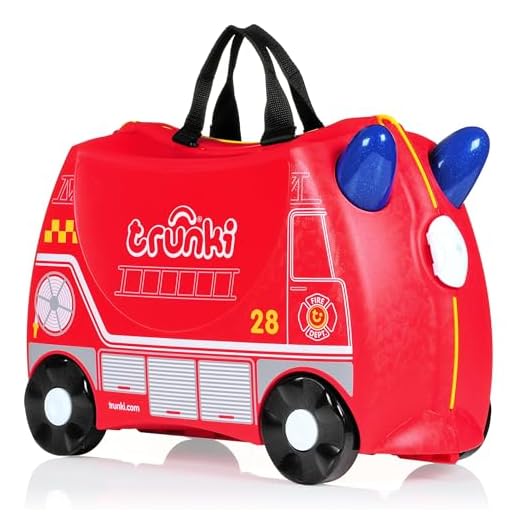

Yes, in many scenarios, retrieving your bags for customs clearance is necessary. Upon arrival at your destination, travelers commonly might need to collect their baggage for inspection even if a connecting trip is booked.
Airlines operating itineraries with transfers often include clear guidelines on this procedure, so it’s advisable to confirm with your carrier beforehand. If you’re transitioning to a domestic route post-international travel, expect to handle your belongings again–this is a standard protocol to ensure compliance with customs regulations.
With a few exceptions, such as when both segments are under the same airline and the luggage is checked through to the final destination, retriaval of your bags is typically mandated. Always verify the requirements at both the departure and arrival locations, as regulations can vary considerably.
Do I Need to Recheck My Luggage from International Flights?
A critical factor to consider is the transit process. If your itinerary includes a layover at a different airport, confirm the baggage policies of both carriers involved. Several airlines partner to provide seamless connections, allowing your belongings to continue to the final destination without additional handling.
Customs and Security Checks
Upon entering the destination country, you must clear customs. Expect to present any checked items for inspection if required. Verify local customs regulations in advance, as restrictions may apply, leading to possible delays.
Connecting Flights
For connections with separate ticket purchases, retrieving belongings is often necessary, as the airlines may not coordinate the transfer. Contact both carriers ahead of time to clarify their stipulations regarding item handling during layovers.
Prior research on the airport layout can save time. Some hubs have designated areas for transfers, minimizing the need for additional movements. In contrast, others may necessitate exiting and re-entering security checkpoints.
Understanding Customs Regulations for Connecting Flights
Upon arrival at a destination that mandates customs clearance, passengers traveling on connecting journeys must comply with specific regulations. Different countries enforce varying protocols regarding the handling of goods and personal items.
Check whether your destination requires a customs declaration. You may be mandated to declare certain goods, such as alcohol, tobacco, or high-value items. Failure to comply may lead to fines or confiscation.
Be aware of duty-free allowances. Each country stipulates limits on the quantity and value of goods that can be brought in duty-free. Familiarize yourself with these limits to avoid unnecessary taxes.
The process may involve collecting your belongings for customs inspection, especially if you are transitioning to a domestic route afterward. Some airports facilitate direct transfer without needing retrieval, but ensure you confirm this beforehand.
Always keep receipts for valuable items to simplify the customs process. If you possess items requiring extra scrutiny, such as electronics or medication, have necessary documentation accessible.
| Country | Customs Declaration Required | Duty-Free Limits |
|---|---|---|
| United States | Yes | $800 per person |
| Canada | Yes | $800 per person |
| United Kingdom | No for personal items | £390 per person (Alcohol and Tobacco specific limits) |
| Australia | Yes | AUD $900 per person |
Consult the official customs website of your destination for the most current information prior to travel. Stay updated on changes as regulations can differ significantly. Prepare adequately to enjoy a smooth transition between your connecting segments.
When Is Baggage Automatically Transferred to Final Destination?
Baggage is automatically sent to the final destination when both segments of travel are on the same airline or on partner airlines within an alliance. It’s critical to ensure that the check-in process confirms this arrangement, which will typically be indicated on the boarding pass.
Connecting itineraries that involve codeshare agreements often allow for seamless transfer of items. However, if you switch airlines that lack a partnership, manual transfer becomes necessary. The absence of an interline agreement means reclaiming items at the first stop to check them in again for the next segment.
For travel involving customs checks, if the first port of entry is outside the Schengen Area or the U.S., expect to claim belongings for customs clearance. Once complete, you may need to drop them off again, unless a seamless connection is confirmed at check-in.
Be aware that variations may exist based on airports, so verifying policies with the specific airlines or consulting airport services can provide clarity before traveling. Consider the time between connections; it’s advisable to have a buffer to handle potential delays.
Identifying Airports That Require Luggage Rechecking
Travelers should be aware that certain airports mandate the collection and reissue of bags during layovers. Key locations include the United States and Canada, where customs and immigration inspections necessitate this process for passengers arriving on international itineraries.
Airports with Mandatory Transfers
Major U.S. airports like Los Angeles (LAX), Chicago O’Hare (ORD), New York JFK, and San Francisco (SFO) typically require travelers to pick up and recheck items for connecting sectors on domestic services. At Canadian hubs such as Toronto Pearson (YYZ) and Vancouver International (YVR), similar rules apply.
Exceptions and Automatic Transfers
Conversely, several global transit points allow for seamless transfer of baggage. Airports in Europe, such as London Heathrow (LHR) and Amsterdam Schiphol (AMS), often auto-transfer items to the next carrier, provided all travel arrangements were booked on a single ticket. Always verify with respective airlines or airport regulations prior to travel.
How to Handle Luggage During Layovers on International Trips
During layovers, understanding the handling of your bags is crucial to ensure a smooth transition to your next destination.
1. Confirm Your Airline’s Policy
Check with your carrier regarding their specific regulations related to baggage transfer. Airlines may have unique protocols based on the type of ticket and destination.
2. Utilize Airport Services
- Many airports provide storage facilities where items can be securely left for a few hours or days during extended stops.
- Consider using ground transportation options that offer direct connections between terminals if you must collect your belongings.
3. Consider the Duration of Your Layover
- For short layovers, bags usually transfer automatically but verify with your airline, especially for separate bookings.
- For longer layovers, assess whether to collect your bags to enjoy the city without the hassle of carrying them around.
4. Customs and Immigration Procedures
Be prepared to go through customs if your stop includes countries with stringent entry rules. This may require you to claim your items and check them again.
5. Be Aware of Transit Regulations
- Some countries have specific transit visa requirements, which might affect your ability to leave the terminal without your bags.
- Research the rules of the country where you have a layover to avoid any surprises.
By being well-informed and prepared, you can manage your travel items efficiently during layover periods, ensuring a seamless path to your next destination.
Tips for Managing Luggage When Rechecking Is Required
Arriving at a new destination and handling your bags can be streamlined with careful planning. Label your suitcase clearly with your name, phone number, and destination address. This helps recover items should they go missing during the transfer process.
Organize What You Pack
Keep essential items–like travel documents, medication, and electronics–accessible in a carry-on. This minimizes disruption when transitioning between segments of your journey.
Understanding Hotel or Storage Options
If there’s a lengthy layover, consider utilizing storage services for your bags. Some airports offer secure storage facilities, allowing you to explore without heavy items. Research accommodations in advance to find options offering luggage handling during your stay.
Consider investing in best luggage sets for overseas travel to ensure durability and ease of transport. A reliable set can significantly ease the burden of managing your belongings.
Additionally, ensure you check the weather forecast for your layover city. Being prepared with appropriate clothing and gear, such as a best buy car sun umbrella, can enhance your experience between travels.
Lastly, if you’re traveling with pets, include activities they enjoy. Planning ahead for your furry companions can alleviate stress. Learn more about the best activity for a pregnant dog to keep them comfortable while you manage your transfers.








